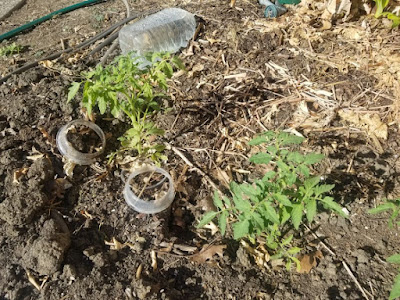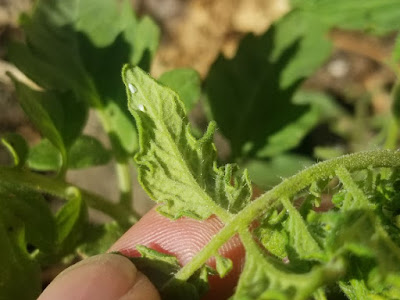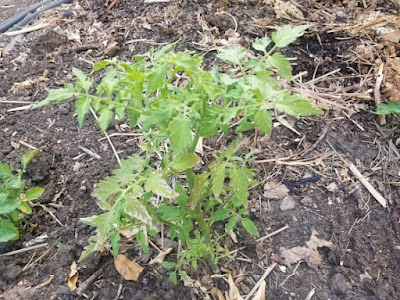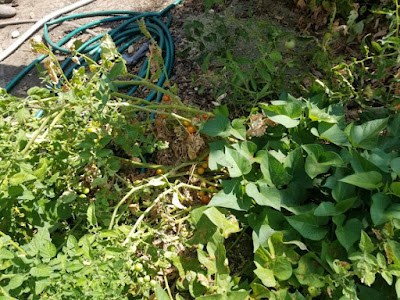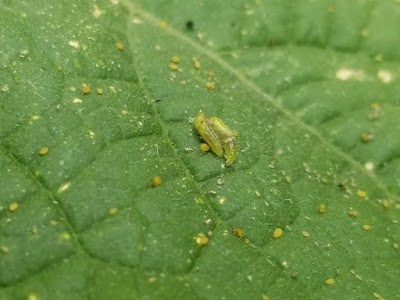Many seed catalogs and hardware stores will soon begin selling beneficial insects. Before deciding to purchase beneficial insects to import into the garden environment, it may be wise to observe what beneficial insects already exist in the area. When I used to live in Tucson, I would see hardware stores sell a whole lot of ladybugs and Chinese mantid oothecas (or praying mantis egg cases). Though it can be temporarily fun and beneficial to introduce insects to the garden, it often does not always pay off in the long-run. Ladybugs are often sold in the spring, when in Tucson, they are only willing to stay around in the cool season - meaning that the ladybugs will make use of their wings to leave the garden as soon as possible.
 |
Aphidius colemani mummy (wasp parasite)
|
Likewise in Tucson, though Chinese mantids are larger than other mantids, they don't stand a chance in the Southwest compared to the Arizona or Mediterranean mantids that have already established themselves in the area. In contrast, Lacewings and parasitic wasps are very plentiful throughout the year in Tucson, so if I didn't have them present, but had a very large garden that could support their population, I could order them from a company that sells beneficial insects.
 |
| Possibly Mediterranean ootheca found around Fairfield, CA |
|
One alternative purchasing insects that don't do well in an area could be to attract local beneficial insects by growing small flowering plants or letting our carrots or dill bolt and flower (attracting Lacewings, parasitic wasps and ladybugs). Various flowering bushes/shrubs also attract beneficials (mantids love to eat flying insects that visit the flowers, then hide among and lay eggs on the branches).
 |
Local mantid ootheca (egg case) Fairfield, CA
|
Providing an ideal environment for preferred insects will ensure they are welcome to the garden and encourages them to be around when they are needed most.
